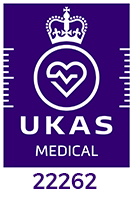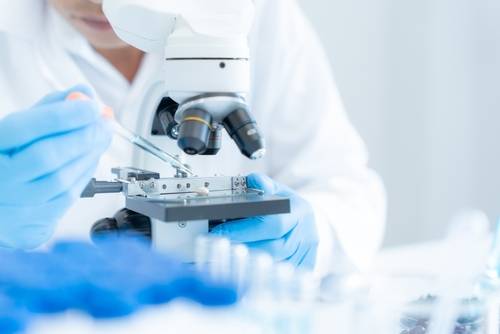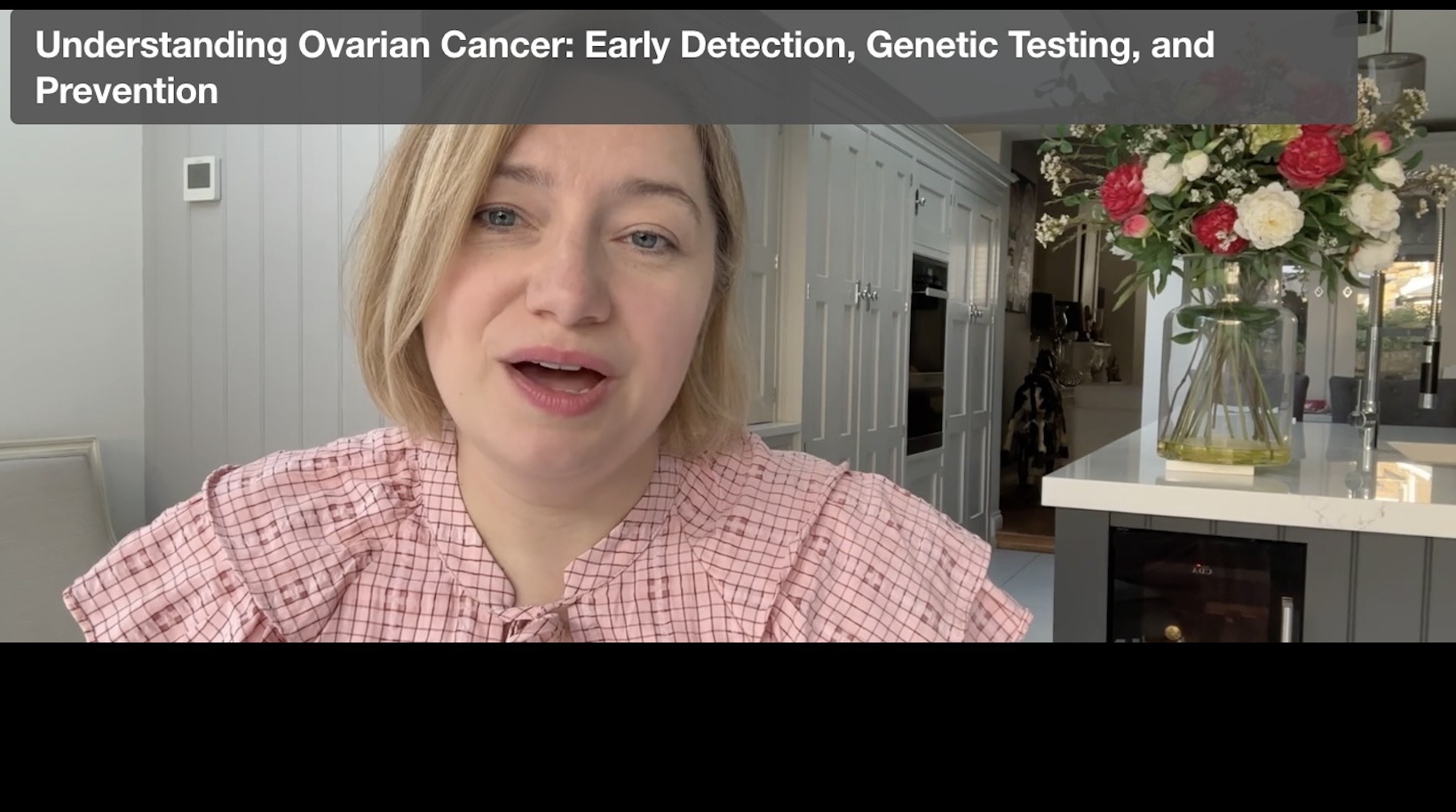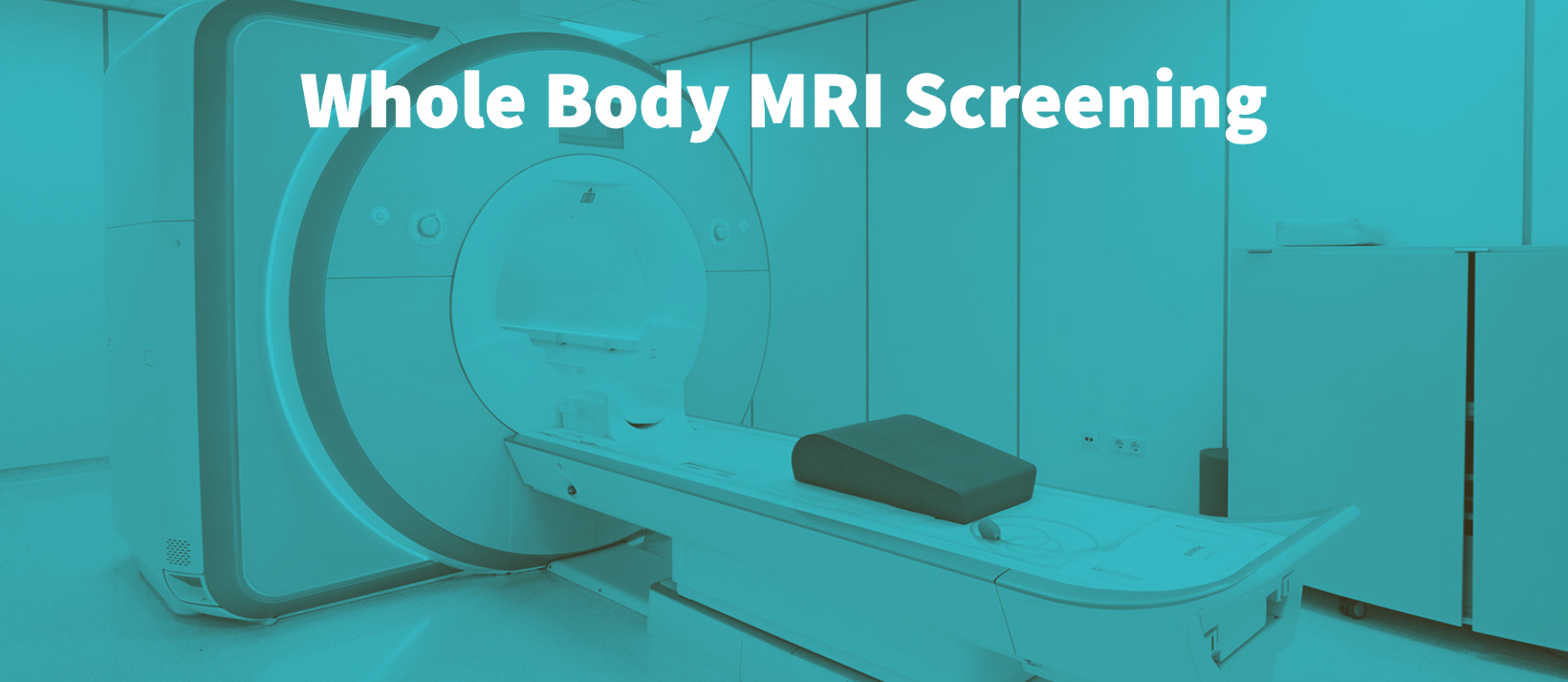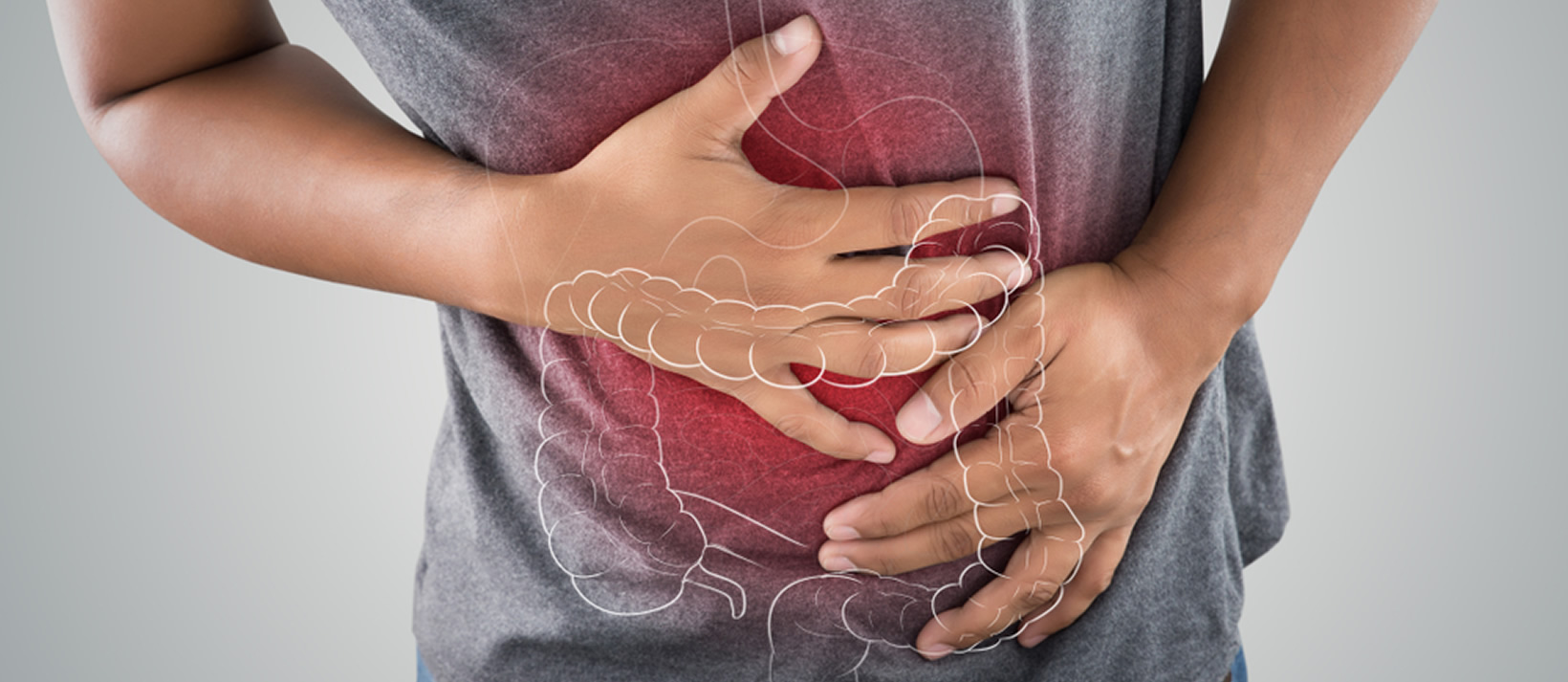Check For Bowel Cancer - Screening At Home
Check For Bowel Cancer - At-Home Screening – Quick, Easy, and Doctor-Supported
A quick and easy test to screen for bowel cancer—guided by expert doctors.
Get results and personalised advice on screening.

Check For Bowel Cancer: Screening Saves Lives
Bowel cancer is the 3rd most common cancer in both males and females in the UK. Like most cancer it becomes more common with age, especially after 45. But sadly we are now seeing an increase in ‘early onset’ colorectal cancer, under 50 years of age. Cases under 50 are predicted to double in the next 10 years.
Using at-home testing can help us diagnose more cancers early, when they are easier to treat.
How It Works
Step 1: Order Your Kit Online
Order your kit online in just a couple of minutes.
Step 2: Sample Kit Delivered
Quick delivery, usually within 3 days, ready to use.
Step 3: Send Your Sample Back
Prepaid return, no hassle.
Step 4: Get Your Results
Receive your results and expert guidance in 5 days.
Why Our Bowel Cancer Screening is Different
Doctor Consultation Included For Positive Results
Unlike competitors, we provide in-depth post-test consultations with our experienced GPs.
Actionable Results
We don’t just test; we help you understand what to do next. We give everyone personalised advice on bowel cancer screening and risk.
More Accurate Testing
Our tests detect blood in the stool at much lower levels than NHS screening.
Plus we can offer testing every year, from 45 years of age which means detecting more cancers early.
Is This Test Right for You?
Do you have a family history of cancer?
Worried about the rise in bowel cancer?
Want to test more often than the NHS screening?
Want to start screening for bowel cancer younger than the NHS screening?
Feel healthy but want to be proactive about your health?
If you can answer yes to any of these questions then this test can help.
Frequently Asked Questions
A positive test result does not mean you have a diagnosis of cancer, but it means you need more checks. The test has shown haemoglobin and this can indicate bleeding from the bowel. Usually a colonoscopy, a camera test to check inside the bowel, is recommended.
A negative test is very reassuring. It means we can be over 99% sure that you don’t have bowel cancer at the time of the test. You should continue to report any symptoms to your GP.
In studies of over 40,000 people they showed testing every year for adults over 45 gave the best results in detecting cancer early.
We only use medical-grade laboratory testing. We use a leading laboratory, who are fully accredited to ISO 15189. This means you can be confident in the accuracy of your results.
We are also unique in that we help you with any positive results. A free GP consultation is included for anyone with a positive result. Our experienced private GPs will be on hand to ensure you get the best possible after care.
We test for a much lower level of blood than the NHS bowel cancer screening programme. The NHS programme only reports if the level is above 120, but we will tell you if your level is above 4.
At-Home Bowel Cancer Screening – £91
Fees include:
- Kit delivery and all postage fees.
- Laboratory analysis.
- Report via email and personalised advice on screening.
- GP consultation for any positive results including advice on referrals via NHS or private medical insurance.
The NHS in England currently offers a home test kit for screening to those aged 54 to 74 years of age, every 2 years.
-
- If you are registered with an NHS GP it will automatically be sent to your home address.
- People aged 75 and over can call up to request a test kit.
- Special risk groups
- People with a high-risk gene mutation such as Lynch Syndrome will be eligible for NHS screening such as a colonoscopy every 2 years from 25 years of age.
- People without a known gene mutation but at high risk for instance due to a family history or a previous bowel cancer may also be eligible for extra testing. Check with your doctor to find out if this might apply to you.
If you have symptoms of bowel cancer, talk to your GP about getting a test.
If you have symptoms then we would recommend talking to your GP. We would be happy to see you for a GP consultation online or in-person at Coyne Medical.
Yes we can offer a full range of health screening from at-home genetic testing to whole body MRI. Check out our packages here.
Pricing and Booking
💰 Price: £91 – Includes Test Kit + Delivery Fees + Laboratory Analysys +Free Follow-Up For Positive Results
Backed by Science & Trusted by Experts
As Featured In
Want to learn more about how to reduce your risk of bowel cancer?Worried about a family history of bowel cancer?
We're Here To Help
If you can’t find the appointment you need or need other assistance please get in touch with us and we would be happy to help.
Email us at contact@coynemedical.com or call us on 02077313077.
Inherited Cancer Risk Screening At Home
Know Your Inherited Cancer Risk At Home
Your test doesn’t just give you results. It gives you answers.
We combine cutting-edge science with expert guidance.
We have been trusted by over 15,000 patients because we care.

Know Your Inherited Cancer Risk At Home
Your test doesn’t just give you results. It gives you answers.
We combine cutting-edge science with expert guidance.
We have been trusted by over 15,000 patients because we care.


More Than a Test - Real Answers, Real Support
01
Book a video consultation with a doctor
Start with a personalised video appointment to discuss your family history, cancer risk, and what the test involves.
02
Receive your saliva kit at home
We’ll send your test kit directly to your door; no blood, no needles, just spit and send.
03
Test for 30+ cancer-related genes
Including BRCA1, BRCA2, PALB2, CHEK2, and many more. We detect inherited risk for breast, ovarian, prostate, bowel, and other cancers.
04
Get your results and a free follow-up with your doctor
We’ll explain exactly what your results mean and help you create a plan for next steps, including prevention or further screening.
What You’ll Get with Your Kit
Your At-Home Genetic Test Kit Includes:
-
📦 Easy-to-use saliva kit (no needles)
-
🎥 Video consultation with a Coyne Medical doctor
-
🧑⚕️ Personalised results with medical guidance
-
📋 Clear report with your inherited cancer risk
-
🔄 Free follow-up consultation to plan next steps
✅ £650 – At-home testing (35 cancer genes, incl. BRCA1 & BRCA2)
What You’ll Get with Your Kit
Your At-Home Genetic Test Kit Includes:
-
📦 Easy-to-use saliva kit (no needles)
-
🎥 Video consultation with a Coyne Medical doctor
-
🧑⚕️ Personalised results with medical guidance
-
📋 Clear report with your inherited cancer risk
-
🔄 Free follow-up consultation to plan next steps
✅ £650 – At-home testing (35 cancer genes, incl. BRCA1 & BRCA2)
As Featured In
We Screen for the Most Common Inherited Cancers
Our test checks for over 30 gene mutations linked to the cancers that matter most — so you can take action early.
- Breast Cancer
- Bowel/Colorectal Cancer
- Ovarian Cancer
- Prostate Cancer
- Melanoma/Skin Cancer
- Other Cancers – including pancreatic, thyroid and more
- Breast Cancer
- Bowel/Colorectal Cancer
- Ovarian Cancer
- Prostate Cancer
- Melanoma/Skin Cancer
- Other Cancers – including pancreatic, thyroid and more
"Testing helped me reduce my risk of breast cancer by over 95%. That's why I help others do the same"
- Dr Lucy Hooper
At Coyne Medical, we believe this kind of knowledge should be routine — not rare.
Why Choose Coyne Medical for Genetic Screening?
Most services stop at results. We go further—personalised, doctor-led, and with you at every step.
❌ What Others Provide
- Lab-only results
- One-size-fits-all tests
- No expert guidance
✅ What We Provide
- Doctor-led care from start to finish
- Genetic tests tailored to you
- Free follow-up to act on your results
💰 Price: £650 – Includes Video Consultation + Test + Free Follow-Up
Interested in BRCA Testing? Compare Care, Support and What’s Included
| Feature | Check4Cancer | Coyne Medical | Randox |
|---|---|---|---|
| Price | £945 | £650 | £529 |
| Sample Type | Saliva (home kit) | Saliva (home kit) | Saliva (home kit) |
| Genes Tested | 11 genes incl. BRCA1/2 | ✅ 30+ genes incl. BRCA1/2, TP53, ATM, PALB2, CHEK2 | 8 genes incl. BRCA1/2 |
| Pre-Test Process | Phone consent | ✅ 30-minute video consult with GP | ❌ None |
| Post-Test Consultation | Genetic counsellor | ✅ Same-day video call with experienced GP | Contact within 30 days to arrange results consultation |
| Follow-Up & Care Plan | Genetic counselling only | ✅ Full plan + GP/relative letters + private/NHS referrals | ❌ Limited – no full care planning |
| Written Report | ✅ Yes | ✅ Yes, with recommendations even if negative | ✅ Yes |
| Time to Results | 3–4 weeks | ✅ 15–20 working days | 6 weeks |
| Lab Accreditation | ✅ CQC & UKAS | ✅ UKAS-accredited lab | ✅ CQC (UKAS not confirmed) |
| Can Be Bundled with Screening? | ❌ No | ✅ Yes – discounted with health screen | ❌ No |
Interested in BRCA Testing? Compare Care, Support and What’s Included
Sample Type: Saliva (home kit)
Genes Tested: 11 incl. BRCA1, BRCA2, PALB2, ATM, CHEK2, TP53, etc.
Pre-Test: Phone consent
Post-Test: Genetic counsellor
Follow-Up: Counselling only
Written Report: ✅ Yes
Time to Results: 3–4 weeks
Accreditation: ✅ CQC & UKAS
Bundled Screening: ❌ No
Sample Type: Saliva (home kit)
Genes Tested: 30+ incl. BRCA1, BRCA2, TP53, PALB2, ATM, CHEK2, etc.
Pre-Test: ✅ 30-minute video consult with GP
Post-Test: ✅ Same-day video call with experienced GP
Follow-Up: ✅ Full care plan + letters + referrals + scans
Written Report: ✅ Yes, with recommendations
Time to Results: ✅ 15–20 working days
Accreditation: ✅ UKAS lab
Bundled Screening: ✅ Yes – discounted option
Sample Type: Saliva (home kit)
Genes Tested: 8 incl. BRCA1, BRCA2, ATM, PALB2, TP53, etc.
Pre-Test: ❌ None
Post-Test: Contact within 30 days to arrange results consultation
Follow-Up: ❌ Limited – no full care planning
Written Report: ✅ Yes
Time to Results: 6 weeks
Accreditation: ✅ CQC (UKAS not confirmed)
Bundled Screening: ❌ No
We Are Here To Answer Your Questions
Genes are small sections of DNA that provide the instructions that give us our individual characteristics. Our genes determine the colour of our eyes and hair, our height and other physical characteristics. Genetic testing looks at variations in these genes that determine whether you might be predisposed to certain diseases. Genetic testing can also tell us how your body might respond to drugs.
The Association of British insurers and the British Medical Association have agreed on a set of questions that insurers can ask your GP when you apply for life insurance. Your GP will be asked about any medical condition that you have suffered in the past or are currently experiencing that may reduce your life expectancy. They are also allowed to ask you and your GP about your family history. They are not allowed to ask or request the results of any predictive genetic testing.
Currently, the only exception in the UK to this is if you are applying for insurance with the only exception being if you are applying for life insurance over £500,000 and you have had a predictive genetic test for Huntington’s Disease. Only in this circumstance do you need to tell the insurance company the result of the test, if they ask.
If you have a strong family history of breast cancer for example and you test negative for genes related to this it may be in your interest to disclose this and you may choose to do this. You can read more about the code of the Association of British Insurers here.
There are two possible outcomes from our cancer gene testing: Negative and positive.
If the result is negative it means that the test did not pick up any genes that increase the risk of disease. It doesn’t mean that you will never develop one of the conditions tested for, as there are many other factors aside from genes that can contribute to developing a disease. As we learn more about genetics and disease, it may be that your test results in the future will be updated to reflect new medical information. If this is the case, we will inform you immediately.
A positive result means you have discovered a gene variant that increases the risk of you developing a certain cancer. You will then be able to work with your doctor to determine what the next steps are for you. This may include options to prevent disease or increased surveillance to detect the disease at an earlier, more treatable stage.
We ensure the highest level of security for your personal information. We will never sell or share your medical information or data. Full details of our privacy policy are available here. We use our patient portal to securely share copies of your results by email. We can use an alternative method of communication if you wish – just let us know.
The genetic testing laboratory receive your personal information and abide by the extremely strict rules on privacy of sensitive data. You must consent to their receiving and sharing your personal information and data. You may choose to opt-out of anonymised research studies.
We only use medical-grade genetic testing. We use a leading specialist laboratories, who are fully accredited to ISO 15189 and 17025.
Our genetic testing uses both full-gene sequencing and deletion/duplication analysis using next-generation sequencing technology (NGS). This is the most accurate method. Some online DNA testing and family history companies use other methods such ‘genotyping’; this leads to more common false positive and negative results. They can be fun and quick to use but are not meant to guide medical decisions or healthcare.
We offer two levels of genetic cancer screening, with options for at-home or in-clinic testing:
🔹 35 Cancer Gene Panel
-
£650 – At-Home Testing
-
£900 – In-Clinic Testing
Includes: -
Pre-test video consultation with a doctor
-
Medical and family history review
-
Sample collection (saliva)
-
Laboratory analysis of 35 cancer risk genes (including BRCA1/2, TP53, PALB2, etc.)
-
Follow-up consultation with a doctor to explain your results
-
Full written report with personalised recommendations for screening, prevention, or onward referral
🔹 54 Cancer Gene Panel + Pharmacogenomics
-
£1300 – In-Clinic Only
Includes everything in the standard panel, plus: -
Expanded analysis of 51 cancer risk genes
-
Pharmacogenetic testing: insight into how your genes may affect medication response (including dosage, side effects, and alternatives)
-
Integrated results report with recommendations for both cancer screening and medication management
✅ All options include follow-up with a Coyne Medical doctor, personalised next steps, and letters for your NHS GP or specialist referrals if needed.
Tumour genes include those related to:
Breast cancer
Ovarian cancer
Uterine cancer
Colorectal cancer
Cutaneous melanoma (skin cancer)
Gastric cancer
Pancreatic cancer
Prostate cancer
Renal cell cancer
Thyroid cancer
Full List of Genes Tested
APC, ATM, BAP1, BARD1, BMPR1A, BRCA1, BRCA2, BRIP1, CDH1, CDK4, CDKN2A, CHEK2, EPCAM, GREM1, HOXB13, MITF, MLH1, MSH2, MSH6, MUTYH, NF1, NTHL1, PALB2, PMS2, POLD1, POLE, POT1, PTEN, RAD51C, RAD51D, RNF43, SMAD4, STK11, TP53, VHL
Yes we believe genetic screening is a really powerful addition to our health screening. Check out our packages here.
As Featured In
As Featured In
Unsure Which Test is Right for You?
Speak with one of our experienced doctors in a 30-minute discovery call.
💳 £250 – fully refundable if you proceed with any screening.
Want To Look Deeper Into Your Health?
At our London clinic we can offer a Complete Genetic Screening; it includes 54 cancer genes and pharmacogenomics. The results will help us uncover more hidden inherited risks, plus we can predict your response to common medicines such as painkillers, cholesterol-lowering drugs and anaesthetics. Helping ensure you get the right medicines when you need them.
Our Ultimate Health Screening package goes even further including access to Whole-Body MRI screening, and advanced cardiovascular risk assessment.
We can also check for over 70 cancers using a simple blood test, finding them before symptoms appear, with our Multi Cancer Early Detection Blood test.
We're Here To Help
If you can’t find the appointment you need or need other assistance please get in touch with us and we would be happy to help.
Email us at contact@coynemedical.com or call us on 02077313077.
Multi Cancer Early Detection Blood Test
Why Choose Trucheck™ Intelli Cancer Blood Test?
Detects 70+ cancers
Simple blood test
Quick results in 2 weeks
Early Detection
Your Screening Journey
Step 1: Consultation
- Schedule a consultation to discuss your health history and whether this blood test is right for you.
- Ask questions about how it works and what the results could mean.
Step 2: Blood Sample Collection
- Quick, minimally invasive blood draw at our clinic.
- No fasting or special preparation needed.
Step 3: Advanced Lab Analysis
- Your blood is analysed using cutting-edge multi-cancer early detection technology.
- Detects Circulating Tumour Cells associated with over 70 types of cancer, even before symptoms appear.
- Results are typically ready in 3 weeks.
Step 4: Doctor Consultation & Next Steps
- Your doctor explains your results clearly and answers all your questions.
- If a cancer signal is detected, we guide you through appropriate follow-up investigations and support.
- If your test is negative, we give you advice on prevention and future screening.
Get peace of mind with our health screening packages.
The Multi Cancer Early Detection Blood Test can be added to any of our health screening packages or taken as a standalone test. For a comprehensive review of your health, consider our Ultimate Health Screening package, which combines advanced tests with personalised care to help you stay ahead of potential risks.
How Does the Trucheck™ Intelli Cancer Blood Test Work?
At Coyne Medical in London, we offer the Trucheck™ Intelli multi-cancer blood test, an advanced screening tool that can detect over 70 types of cancer at an early stage.
Cancerous tumours release tiny circulating tumour cells (CTCs) and fragments into the bloodstream. These cells play a key role in cancer spread, especially when they travel in clusters.
The Trucheck™ Intelli test identifies these CTCs in your blood sample, helping to pinpoint the likely organ of origin. If cancer-related cells are detected, your doctor can recommend targeted follow-up tests for further evaluation.
Our Fulham-based clinic provides this cutting-edge blood test as part of a comprehensive health screening or as a standalone service for proactive cancer detection in London.
We Are Here To Answer Your Questions
It’s a simple, non-invasive blood test that screens for over 70 types of cancer. It can detect cancer early, even in hard-to-screen areas, and identify the likely organ of origin for precise follow-up.
This test is ideal for adults at higher risk of cancer due to age, family history, or lifestyle factors. It’s also valuable for those seeking peace of mind.
- Aged 40 years of age or older
- Aged 35 to 39 years of age only if one of the following apply:
- a family history of cancer
- known to have an inherited cancer gene mutation e.g. BRCA1
- obesity with a BMI over 30
- type 2 diabetes
- history of infectious disease linked to cancer e.g. hepatitis B or C
- history of exposure to cancer causing chemical e.g. through work
The test has been validated in clinical trials, showing high sensitivity and specificity for cancer detection, especially for aggressive cancers.
- Trucheck™ Intelli is a blood test that can detect more than 70 types of early-stage cancer in people without any symptoms.
- The sensitivity is 88.2% – meaning that for every 100 patients tested who have cancer, it will correctly identify 88 of those patients, resulting in a 12% false negative rate.
- The specificity is 96% – meaning that for every 100 people tested, that do not have cancer, Trucheck ™ Intelli will correctly identify 96 of these individuals, resulting in a 4% false positive rate.
- False positives occur in all screening tests, the 4% level in Trucheck tests compares very favourably with other cancer screening such as PSA testing (16-22%), FIT testing (10-12%) and mammograms (7-12% at first mammogram) which all have much higher false positive rates.
If a cancer signal is detected, your results will include the likely organ of origin. This will help to decide on what tests to do next, remember that a positive result means a high risk of cancer but it is not confirmed. Your doctor will guide you on the next steps, which may include further tests or specialist referrals.
Results are typically available within two weeks. Your doctor will contact you as soon as they are ready.
No, this test is a complement to routine screenings like mammograms or colonoscopies, not a replacement. It helps detect cancers that lack routine screening methods.
The Trucheck™ Intelli can detect over 70 types of cancer. Including the most common cancers; breast, bowel, prostate, ovarian, and lung cancers (see full list below).
Trucheck™ cannot detect blood or lymphatic system cancers because CTCs are associated with solid organ malignancies.
- Adenocarcinoma ( Salivary Duct, Thyroid, Breast, lung, Oesophagus, Stomach, Duodenum,
Jejunum, Ileum, Colon, Rectum, Pancreas, Gallbladder, Bile Duct, Liver, Ovary, Prostate, Uterus); - Squamous Cell Carcinoma (SCC; Buccal Mucosa, Hard Palate, Larynx, Lip, Oral Cavity, Paranasal Sinus, Pharynx, Pyriform Fossa, Retromolar Trigone, Soft palate, Tongue, Tonsil, Oesophagus, Lung, Penis, Cervix, Vulva, Vagina, Anorectal, Skin);
- Adenosquamous Carcinoma (Oesophagus, Lung);
- Neuroendocrine (Lung, Esophagus, Duodenum, Jejunum, lleum, Thymus, Adrenal, Pancreas, Prostate, Colon, Rectum);
- Renal Cell Carcinoma (Kidney);
- Transitional Cell Carcinoma (Bladder, Renal Pelvis, Ureter);
- Gastrointestinal Stromal tumors (Stomach, Duodenum, lleum, Jejunum, Colon, Rectum);
- Melanomas (Cutaneous, Mucosal);
- Mesothelioma (Plural, Peritoneal);
- Sarcomas (Carcinosarcoma, Chondrosarcoma, Leiomyosarcoma, Osteosarcoma, Liposarcoma);
- Small Cell Lung Cancer (Lung);
- Glioma.
No. The test is designed for people without symptoms. If you have symptoms, you should seek urgent medical advice.
In the future, the tests may be used to help guide which patients with symptoms need further checks such as a biopsy but this is still at a research stage.
In studies, the test is positive in both early and late-stage cancers. This is good because many current tests only detect cancers when they are at an advanced or late stage. Early diagnosis is likely to make treatment more successful.
No. It is only suitable for people who have not had cancer.
There are other similar tests available to monitor patients after cancer treatment. We would recommend you speak with your treating doctor or surgeon to see if there is a test suitable for you.
It can be a useful addition to your yearly health screening or medical check-up. You should discuss this with your Doctor how often or when is the right time for you to test.
If you have more questions about the test itself then the laboratory has lots of detailed scientific information available here.
Take control of your health today. Book your cancer screening with Coyne Medical
Not sure which screening is right for you?
Why Patients Choose Us

As Featured In
We're Here To Help
If you can’t find the appointment you need or need other assistance please get in touch with us and we would be happy to help.
Email us at contact@coynemedical.com or call us on 02077313077.
Learn More About Cancer Screening With Us
Genetic Screening London – Coyne Medical
Take Control with Genetic Screening for Inherited Cancer Risk
Dr. Lucy’s story shows how personalised testing can help you act early.
Our Co-Founder, Dr. Lucy, was researching genetic screening for her patients when she discovered her own gene mutation. With a breast cancer risk of over 60%, she chose a risk-reducing mastectomy, lowering her risk to less than 5%. Now, she’s passionate about giving you the same opportunity to take control of your health and prevent cancer.
The Most Common Inherited Cancers—and How We Can Help You Stay Ahead
These five types of cancer are most commonly linked to inherited genetic mutations. Here’s how genetic screening can reveal your risk and how we support you in acting on it.
🧬 Genes We Test
-
MLH1, MSH2, MSH6, PMS2 (Lynch syndrome)
-
APC (Familial Adenomatous Polyposis)
-
MUTYH, RNF43 and GREM1
Gene mutations cause about 35% of early-onset colorectal cancer, when people get cancer under 50 years of age.
📈 Risk Increase
-
Lynch syndrome: Bowel cancer risk ranges from 12% to 75% before 75 years of age.
-
Familial adenomatous polyposis (FAP): This is caused by a mutation in an APC gene. Polyps start in childhood, up to 90% of people will develop cancer by 45 years of age without treatment. Some types of APC gene mutation cause a milder form of FAP, these people have fewer polyps and develop cancer at older ages, on average 54 years.
-
MUTYH-associated polyposis (MAP): Caused by mutations in the MUTYH gene. Usually, people are only affected if they inherit TWO faulty copies of the MUTYH gene. Occasionally some people have a combination of mutations in MUTYH and APC genes. The risk of bowel cancer in patients with two MUTYH gene mutations has been estimated at between 43% to 100%. People with only one faulty copy may also be at slightly increased risk.
-
RNF43 and GREM1: both associated with polyposis and increased cancer risk.
- Other less common gene mutations include POLE and POLD1, MSH3, and NTHL.
🛡️ If You Test Positive
- Early Detection
- Colonoscopy: For example for MLH1 mutation carriers bowel cancer screening by a colonoscopy is recommended every 2 years from 25 years of age. This will help to detect cancers earlier, when treatment is easier and more successful.
- Prevention
- Aspirin: Taking a simple aspirin tablet daily for 2 years reduced the risk of bowel cancer by 60%. That’s an enormous benefit for a simple medicine and a great example of why it is so important we find more people with these mutations so they get to actually prevent their cancers.
- Fibre: a high-fibre diet can also reduce the risk of other cancers associated with Lynch Syndrome such as stomach and endometrium (womb).
- Other Cancers: you can discuss options for reducing risk of other cancers. For instance, many women with Lynch Syndrome choose to have a hysterectomy (removal of the womb) to reduce the risk of endometrial (womb) cancer, after completing their family in their mid to late 40’s.
🧬 Genes We Test
-
BRCA1 and BRCA2
-
PALB2, TP53, CHEK2, ATM
- CDH1, PTEN, STK11
About 5-10% of breast cancers are directly caused by an inherited genetic mutation. This means the person has inherited a ‘fault’ in a gene. linked to breast cancer risk from either their biological mother or father.
📈 Risk Increase
- BRCA1 & BRCA2 – High risk: these cause a high risk of breast cancer, for example people with a BRCA1 mutation may have up to 90% lifetime risk of breast cancer.
- PALB2, TP53, CHEK2, ATM – Moderate risk: mutations in these genes carry a 15-60% lifetime risk of breast cancer. The exact estimate will depend on the mutation, as well as other lifestyle factors.
- CDH1, PTEN, STK11 – These are much rarer gene mutations which are associated with breast cancer risk.
🛡️ If You Test Positive
-
Annual breast MRI from an earlier age, usually from 30 years of age for females.
- Breast MRI and mammogram screening can identify cancers at an early stage, when treatment is easier and more successful.
- We can also ensure breast density is assessed regularly, and consider a Multi-Cancer Early Detection Blood test from 35 years of age.
-
Risk-reducing medication
- Medication can reduce the risk of cancer developing by up to 50%
-
Consideration of preventative surgery (mastectomy)
- Risk-reducing mastectomy and reconstruction can reduce breast cancer risk by over 95%.
-
Protecting Other Family Members
- It can be a great gift to safeguard the health of your family members by sharing your results. Giving them the power to prevent cancer and detect it earlier. Many of the genes are also linked to other cancers, which we can do additional screening and prevention for, including:
- Ovarian Cancer
- Pancreatic Cancer
- Melanoma
- It can be a great gift to safeguard the health of your family members by sharing your results. Giving them the power to prevent cancer and detect it earlier. Many of the genes are also linked to other cancers, which we can do additional screening and prevention for, including:
Mutations in Men and Other Cancers
Half of the people with a BRCA1 or BRCA2 mutation, will be biological males. Many men don’t worry about a family history of breast cancer but this is a mistake.
- Breast Cancer: Men with a BRCA1 or BRCA2 mutation have an increased risk of male breast cancer
- It Is important they regularly check their chest and report any changes or lumps.
- Male breast cancer is generally rare, affecting less than 0.02% of men, if they have a BRCA1 or 2 mutation that jumps to 7-9%.
- It is strongly recommended that any male who has breast cancer themselves have genetic testing.
- Prostate Cancer: They have an up to 60% chance of getting prostate cancer in their lifetime. That’s over 8 times the average male.
- Regular screening such as PSA tests can help them detect this earlier.
- We also have newer screening options available at Coyne Medical, including the Stockholm3 test.
- Pancreatic Cancer: The risk of this cancer particularly affects men over 50 years.
- Men with a BRCA1 or BRCA2 mutation have over 7 times the risk of an average male.
- Melanoma skin cancer
- Regular skin checks and preventative measures are important.
🧬 Genes We Test
-
BRCA1 and BRCA2
-
PALB2, HOXB13, ATM, CHEK2
- EPCAM, MLH1, MSH2, MSH6
Prostate cancer has a strong genetic component. For example, we know if a man has a brother with prostate cancer they have a 30% chance of developing prostate cancer before 75 years of age. Testing for inherited cancer risk is especially important if there is a family history of prostate cancer before 60 years of age or metastatic prostate cancer.
📈 Risk Increase
-
BRCA2: BRCA2 mutation carriers have up to 8 times higher risk compared to non-carriers. The risk in BRCA1 mutation carriers is lower.
-
HOXB13: increased risk especially with family history, may cause a 3 to 4 times higher chance of prostate cancer.
-
ATM and CHEK2: carriers of these mutations have approximately 2 to 3 times the risk of prostate cancer.
-
Lynch syndrome (EPCAM, MLH1, MSH2, MSH6): Have about 2 times the risk of a non-carrier, but those with a MSH2 mutation may be at higher risk, approximately 23% chance before 75 years of age.
- PALB2: The risk of prostate cancer is not clear, but regular checks are sensible as some men may be at risk, especially if there is a family history.
🛡️ If You Test Positive
-
Earlier and more frequent PSA testing (prostate cancer blood test)
- We can also use newer tests such as Stockholm3 and Multi-Cancer Early Detection Blood tests.
-
MRI prostate screening
- Especially valuable for increases in PSA and more accurate diagnosis.
-
Personalised decisions around biopsy and treatment
-
Protecting Family Members
- Relatives can benefit from extra and earlier prostate cancer screening. Many of the genes involved are also linked to other cancers, so we can offer extra screening and early detection for these too.
- Breast Cancer
- Ovarian Cancer
- Colon Cancer
- Pancreatic Cancer
- Relatives can benefit from extra and earlier prostate cancer screening. Many of the genes involved are also linked to other cancers, so we can offer extra screening and early detection for these too.
🧬 Genes We Test For
-
BRCA1, BRCA2, PALB2
-
RAD51C, RAD51D, BRIP1
- Lynch Syndrome (MLH1, MSH2, MSH6, PMS2 genes)
📈 Risk Increase
-
BRCA1 carriers have approximately a 40% risk.
-
BRCA2 carriers have approximately a 15% risk.
-
Lynch Syndrome (MLH1, MSH2, MSH6, PMS2 genes): the ovarian cancer risk may be up to 13%, in MSH2 carriers.
- PALB2: the risk is estimated at around 5%.
-
BRIP1: the lifetime risk is about 5.8%.
- RAD51C and RAD51D the risk is 5.2% and 12% respectively over the person’s lifetime.
🛡️ If You Test Positive
-
Consider preventative surgery after childbearing (salpingo-oophorectomy)
- Removal of the tubes and ovaries, usually done as a laparoscopic (keyhole) surgery can significantly reduce the risk of cancer
-
Personalised screening
- Knowing the increased risk makes the use the of latest tests including Ca-125 blood test, and the Multi-Cancer Early Detection Blood test.
- Symptom Awareness
- Ovarian cancer symptoms are often confused for other conditions, such as digestion issues or bladder problems. Knowing you are at increased risk means we can act early on any symptoms.
-
Hormonal and lifestyle support post-surgery
- We can personalise your management after risk-reducing surgery, including using Hormone Replacement Therapy.
-
Protect Family Members
- Give the power of prevention and early detection to your loved ones. Many of the genes linked to ovarian cancer are also linked to other cancers which can be preventable and detected earlier with the right screening, including:
- Breast Cancer
- Prostate Cancer
- Pancreatic Cancer
- Bowel Cancer
- Endometrial (womb) Cancer
- Give the power of prevention and early detection to your loved ones. Many of the genes linked to ovarian cancer are also linked to other cancers which can be preventable and detected earlier with the right screening, including:
🧬 Genes We Test
-
CDKN2A (most common)
-
BAP1 (associated with multiple cancers)
-
CDK4, PTEN, BRCA2
- MITF (looking for the E318K variant)
Melanoma risk is largely inherited as we inherit our skin colour from our biological parents, and we know light-skinned people have 2 times the risk of dark-skinned people. But some families do carry a harmful genetic variant which passes on a high risk of melanoma, it is especially worth screening when people have had multiple melanomas, or been diagnosed under 40 years of age.
📈 Risk Increase
-
CDKN2A: 30–70% lifetime risk depending on family history and sun exposure
-
BAP1: linked to melanoma of the skin and eye
-
CDK4: may have a lifetime risk of up to 80% for melanoma
- MITF (E318K variant): 2 – 4 times risk of cutaneous melanoma.
🛡️ If You Test Positive
-
Full skin checks annually
- We know early detection of melanoma is very important to make treatment easier and more successful.
-
Personalised advice on UV protection and mole surveillance
- Monthly self-checks are sensible alongside your regular visits. Plus careful UV protection can significantly reduce your risk of melanoma.
-
Early biopsy of suspicious lesions
- Knowledge of your risk means you can get new lesions checked promptly.
-
Protecting Family Members
- Knowledge of a gene mutation in a family means you can give your loved the power to prevent cancer and detect it earlier. Many of the genes linked to melanoma are also linked to other cancers, which we can do additional screening and early detection for, including:
- Pancreatic Cancer
- Breast Cancer
- Ovarian Cancer
- Knowledge of a gene mutation in a family means you can give your loved the power to prevent cancer and detect it earlier. Many of the genes linked to melanoma are also linked to other cancers, which we can do additional screening and early detection for, including:
What Screenings Do You Actually Need?
Take the 2-minute health quiz
Know Your Inherited Cancer Risk: Turn Genetic Testing Into Lifesaving Action
At Coyne Medical, we guide you through the process with clarity, compassion, and world-class care. Whether you're assessing cancer risk or exploring how your genes affect medication response (pharmacogenomics).
Early Detection
Identify health risks before they become problems, not after a cancer diagnosis.
Targeted Prevention
Results give you the power to take action to prevent cancer.
Personalised Treatment
Harness the power of your DNA to tailor medications that work best for you.
Your Family’s Future Health
Your results may hold answers for your family too—help protect their future with shared knowledge.
More Than Just a Test
From interpretation to action—your GP is with you throughout.
State-of-the-art sequencing for accurate, clinically validated results.
Not just testing—continued care, expert monitoring, and personalised support whenever you need it.
Your Genetic Screening Journey: What To Expect
Step 1: Consultation with Your Doctor
Discuss your health and family history with our doctors. We’ll explain the test and answer your questions.
Step 2: Sample Collection
At your clinic appointment you can choose a saliva sample for our 31-gene test or a blood sample for our 54-gene and pharmacogenomics test.
At-Home Testing uses an easy and simple saliva sample, delivered the next day ready to use and return.
Step 3: Results Review
Review your results with your doctor. Together, you’ll create a personalised prevention or treatment plan.
Step 4: Ongoing Care and Long-Term Support
Get long-term support, including regular follow-ups, additional screenings, and guidance for managing health risks.
Choose The Right Genetic Screening For You
Genetic Screening is included in our Ultimate Health Screening package for a truly comprehensive approach to your health. You can also add it to any of our other health screening packages or choose it as a standalone test, tailored to your needs.
Option 1: 35-Gene Cancer Screen
- Ideal For:
- Individuals taking charge of their future health through knowledge of inherited cancer risk
- Anyone with a family history of cancer who wants clarity, control, and peace of mind
- Those ready to take the first step in personalised cancer prevention
- What’s Included:
- Tests 31 key genes linked to common cancers
- Saliva sample
- Includes consultations, lab analysis, and a follow-up plan
Fee: £650 (At-Home Testing) or £900 (In-Clinic Testing)
Option 2: 54-Gene Cancer + Pharmacogenomic Screen
- Ideal For:
- Individuals seeking the most advanced insights to personalise both cancer prevention and treatment
- Those who want to understand how their genes affect their health and how medications work uniquely for them
- People ready to future-proof their health with precision and confidence
- What’s Included:
- Tests 54 cancer-related genes
- Includes 22 genes for how your body responds to medications
- Blood sample
- Includes consultations, lab analysis, and a follow-up plan
Fee: £1300
Why We're So Passionate About Genetic Screening
Up to 95% of people with Lynch syndrome—a condition that significantly increases the risk of colon, endometrial, and other cancers—remain undiagnosed. That’s not just a statistic. It means thousands of families miss the chance to take action early. Sadly the same statistics apply to the other most common inherited cancer genes like BRCA1 and BRCA2.
At Coyne Medical, this is why Dr Lucy and our team are deeply committed to raising awareness and improving access to genetic screening. We believe that identifying inherited cancer risk shouldn’t be rare—it should be routine. Because when people know their risk, they can protect their future and their families.
Understanding Pharmacogenomics
Your DNA, Your Medicine: The Power of Pharmacogenomics
Pharmacogenomics analyzes how your DNA influences your response to medications, helping your doctor choose the right drug at the right dose for you.
- Analyze 22 genes that predict your response to common medications.
- Covers anti-depressants, painkillers, cholesterol-lowering drugs, cardiac medications, and more.
- Helps reduce the risk of side effects and ensures the medication you take is as effective as possible.
Did you know? 20% of new prescriptions in the UK could be changed if doctors knew a patient’s pharmacogenomics results in advance.
- Your results don’t just guide your current prescriptions—they provide valuable insights for the rest of your life.
Optimise Your Medications with Pharmacogenomic Testing
Take Control of Your Future Health
Begin your personalised journey to cancer prevention.
In-clinic and at-home options available
Need Help Choosing the Right Test?Speak to one of our expert doctors
in a 30-minute discovery call.
💳 £250 – Fully refundable if you go ahead with any screening
Frequently Asked Questions
Genes are small sections of DNA that provide the instructions that give us our individual characteristics. Our genes determine the colour of our eyes and hair, our height and other physical characteristics. Genetic testing looks at variations in these genes that determine whether you might be predisposed to certain diseases. Genetic testing can also tell us how your body might respond to drugs.
Our genetic screening tests over 70 gene variants that can predispose to cancer and tell us about how your body reacts to drugs. Importantly, all of these gene variants can be acted upon to help prevent or reduce the risk of the condition. Or for the pharmacogenetic genes can help guide drug treatment either now or in the future.
Providing a DNA sample is very simple.
The sample depends on the test chosen.
51 cancer gene screening PLUS pharmacogenomics uses a normal blood sample.
31 cancer gene screening uses a saliva test. The saliva test can be taken at home or in clinic you simply spit into the tube.
We work with two specialist genetic testing laboratories who both registered and highly respected for specialist genetic testing. The laboratories uses the highest standard of genetic testing called NGS (next generation sequencing). This is the most accurate method. Some online DNA testing and family history companies use other methods such ‘genotyping’; this leads to more common false positive and negative results. They can be fun and quick to use but are not meant to guide medical decisions or healthcare.
We expect your laboratory report to be available within 6 weeks of your appointment. This timeframe ensures the highest accuracy and reliability from our trusted labs. We will contact you when it is available to arrange a follow-up consultation.
The Association of British insurers and the British Medical Association have agreed on a set of questions that insurers can ask your GP when you apply for life insurance. Your GP will be asked about any medical condition that you have suffered in the past or are currently experiencing that may reduce your life expectancy. They are also allowed to ask you and your GP about your family history. They are not allowed to ask or request the results of any predictive genetic testing.
Currently, the only exception in the UK to this is if you are applying for insurance with the only exception being if you are applying for life insurance over £500,000 and you have had a predictive genetic test for Huntington’s Disease. Only in this circumstance do you need to tell the insurance company the result of the test, if they ask.
If you have a strong family history of breast cancer for example and you test negative for genes related to this it may be in your interest to disclose this and you may choose to do this. You can read more about the code of the Association of British Insurers here.
There are two possible outcomes from our cancer gene testing:
Negative and positive.
If the result is negative it means that the test did not pick up any genes that increase the risk of disease. It doesn’t mean that you will never develop one of the conditions tested for, as there are many other factors aside from genes that can contribute to developing a disease. As we learn more about genetics and disease, it may be that your test results in the future will be updated to reflect new medical information. If this is the case, we will inform you immediately.
A positive result means you have discovered a gene variant that increases the risk of you developing a certain cancer. You will then be able to work with your doctor to determine what the next steps are for you. This may include options to prevent disease or increased surveillance to detect the disease at an earlier, more treatable stage.
Your pharmacogenetic testing will likely show several different variants, in your report there will be detailed recommendations on medications. This might include advice to reduce doses or consider alternative medicines for common drugs such as cholesterol medicines, pain killers and antidepressants.
We ensure the highest level of security for your personal information. Full details of our privacy policy are available here. We use our patient portal to securely share copies of your results by email. We can use an alternative method of communication if you wish – just let us know.
The genetic testing laboratory receive your personal information and abide by the extremely strict rules on privacy of sensitive data. You must consent to their receiving and sharing your personal information and data. You may choose to opt-out of anonymised research studies.
We only use medical-grade genetic testing. We use a leading specialist laboratories, who are fully accredited to ISO 15189 and 17025.
Our genetic testing uses both full-gene sequencing and deletion/duplication analysis using next-generation sequencing technology (NGS). This is the most accurate method. Some online DNA testing and family history companies use other methods such ‘genotyping’; this leads to more common false positive and negative results. They can be fun and quick to use but are not meant to guide medical decisions or healthcare.
We offer two levels of genetic cancer screening, with options for at-home or in-clinic testing:
🔹 35 Cancer Gene Panel
-
£650 – At-Home Testing
-
£900 – In-Clinic Testing
Includes: -
Pre-test video consultation with a doctor
-
Medical and family history review
-
Sample collection (saliva)
-
Laboratory analysis of 35 cancer risk genes (including BRCA1/2, TP53, PALB2, etc.)
-
Follow-up consultation with a doctor to explain your results
-
Full written report with personalised recommendations for screening, prevention, or onward referral
🔹 54 Cancer Gene Panel + Pharmacogenomics
-
£1300 – In-Clinic Only
Includes everything in the standard panel, plus: -
Expanded analysis of 51 cancer risk genes
-
Pharmacogenetic testing: insight into how your genes may affect medication response (including dosage, side effects, and alternatives)
-
Integrated results report with recommendations for both cancer screening and medication management
✅ All options include follow-up with a Coyne Medical doctor, personalised next steps, and letters for your NHS GP or specialist referrals if needed.
Yes we believe genetic screening is a really powerful addition to our health screening. Check out our packages here.
Can I see a list of which genes will be tested?
Tumour genes include those related to:
Breast cancer
Ovarian cancer
Uterine cancer
Colorectal cancer
Cutaneous melanoma
Gastric cancer
Pancreatic cancer
Prostate cancer
Renal cell cancer
Thyroid cancer
Full List of Genes Tested
| APC | CDH1 | MLH1 | POLD1 | SDHB | TSC2 |
| ATM | CDKN2A | MSH2 | POLE | SDHC | VHL |
| AXIN2 | CHEK2 | MSH6 | PTCH1 | SDHD | WT1 |
| BAP1 | DICER1 | MUTYH | PTEN | SMAD4 | |
| BARD1 | EPCAM | NBN | RAD51C | SMARCA4 | |
| BMPR1A | FH | NF1 | RAD51D | SMARCB1 | |
| BRCA1 | FLCN | NF2 | RB1 | STK11 | |
| BRCA2 | KIT | PALB2 | RET | TMEM127 | |
| BRIP1 | MEN1 | PDGFRA | SDHA | TP53 | |
| CDC73 | MET | PMS2 | SDHAF2 | TSC1 |
Tumour genes include those related to:
Breast cancer
Ovarian cancer
Uterine cancer
Colorectal cancer
Cutaneous melanoma
Gastric cancer
Pancreatic cancer
Prostate cancer
Renal cell cancer
Thyroid cancer
Full List of Genes Tested
APC, ATM, BAP1, BARD1, BMPR1A, BRCA1, BRCA2, BRIP1, CDH1, CDK4, CDKN2A, CHEK2, EPCAM, GREM1, HOXB13, MITF (E318K variant), MLH1, MSH2, MSH6, MUTYH, NF1, NTHL1, PALB2, PMS2, POLD1, POLE, POT1, PTEN, RAD51C, RAD51D, RNF43, SMAD4, STK11, TP53, VHL
Tumour genes include those related to:
Breast cancer
Ovarian cancer
Uterine cancer
Colorectal cancer
Cutaneous melanoma
Gastric cancer
Pancreatic cancer
Prostate cancer
Renal cell cancer
Thyroid cancer
Full List of Genes Tested
| APC | CDH1 | MLH1 | POLD1 | SDHB | TSC2 |
| ATM | CDKN2A | MSH2 | POLE | SDHC | VHL |
| AXIN2 | CHEK2 | MSH6 | PTCH1 | SDHD | WT1 |
| BAP1 | DICER1 | MUTYH | PTEN | SMAD4 | |
| BARD1 | EPCAM | NBN | RAD51C | SMARCA4 | |
| BMPR1A | FH | NF1 | RAD51D | SMARCB1 | |
| BRCA1 | FLCN | NF2 | RB1 | STK11 | |
| BRCA2 | KIT | PALB2 | RET | TMEM127 | |
| BRIP1 | MEN1 | PDGFRA | SDHA | TP53 | |
| CDC73 | MET | PMS2 | SDHAF2 | TSC1 |
Pharmacogenetics illustrates how genetic changes can affect the influence of drugs. Genetic changes in the proteins responsible for absorption, distribution, metabolism, and excretion of drugs can have a huge impact on their effectiveness and compatibility. Some drugs have different effects on different people, e.g. antidepressants, analgesics, neuroleptics, chemotherapeutics, AIDS medication, thrombosis medication, anaesthetics, beta-blockers, and statins. Reduced or missing activity of a specific enzyme may increase the drug dosage and cause unwanted side effects. On the other hand, a medication that is activated by metabolism may not work if an enzyme is inactive. Enhanced enzyme activity can also affect the response to medication, e.g. by degrading the active ingredients.
Full List of Genes
| ABCG2 | CYP2D6 | G6PD | NUDT15 | UGT1A1 |
| CACNA1S | CYP3A4 | HLA-A | POR | VKORC1 |
| CYP2B6 | CYP3A5 | HLA-B | RYR1 | |
| CYP2C19 | CYP4F2 | IFNL3 | SLCO1B1 | |
| CYP2C9 | DPYD | MT-RNR1 | TPMT |
What Screenings Do You Actually Need?
Take the 2-minute health quiz
Why Patients Choose Us
As Featured In
We're Here To Help
If you can’t find the appointment you need please get in touch with us and we would be happy to help.
Email us at contact@coynemedical.com or call us on 02077313077.

